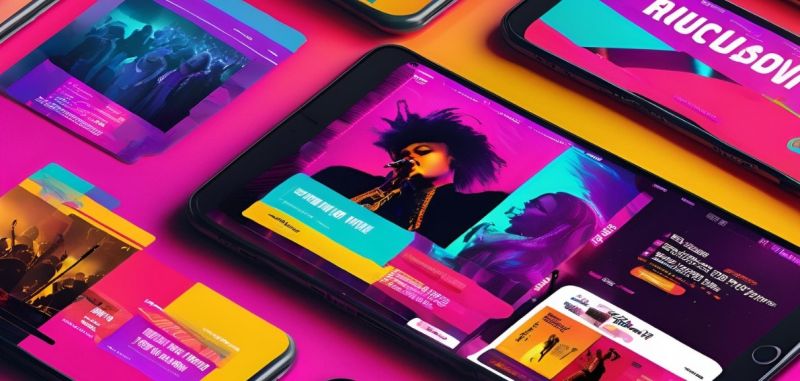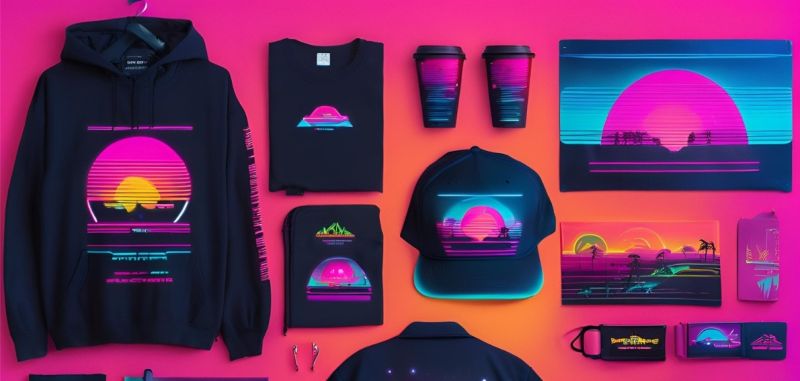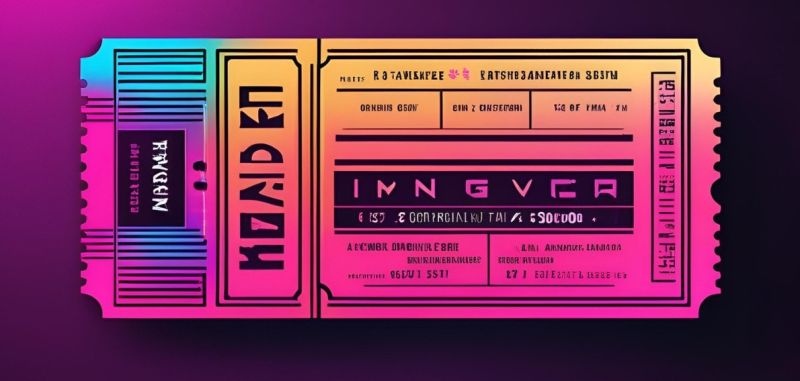Marketing is one of the most crucial components when planning a successful music festival.
The right marketing strategy ensures high ticket sales, engaged audiences, and lasting brand awareness, which are crucial for the sustainability of the music festival business. However, in order to create and implement a powerful marketing campaign, you need a well-planned budget.
Balancing costs while making the most of your resources is key to achieving your goals without overspending. In this article, we’ll discuss the key factors you should consider when creating a music festival marketing budget.
These factors will help guide your decision-making process and ensure that your marketing efforts are both effective and cost-efficient.
1. Understanding Music Festival Budgets

A music festival budget is a comprehensive financial plan that outlines all expected costs and revenues associated with the event. It serves as a financial roadmap, helping organizers make informed decisions and allocate resources effectively.
A well-crafted budget includes line items for various costs such as venue rental, artist fees, equipment, staff wages, marketing expenses, and security. It also accounts for projected revenue streams like ticket sales, sponsorships, and merchandise.
Understanding music festival budgets is crucial for the financial sustainability of the event. It helps organizers identify areas where costs can be reduced or optimized, ensuring the festival’s profitability. A music festival budget typically includes both fixed and variable costs.
Fixed costs, such as venue rental and production expenses, remain stable regardless of attendance, while variable costs, like artist fees and marketing expenses, fluctuate based on the number of attendees.
Effective budget management is essential for a successful festival. It involves tracking expenses in real-time, adjusting for unexpected costs, and regularly reviewing and updating budget forecasts. By doing so, organizers can ensure that their music festival stays financially on track and achieves its financial objectives.
Also Read: Music Festival Marketing: The Ultimate Guide to Boosting Ticket Sales and Buzz
2. Advertising and Promotions

One of the largest portions of your marketing budget will likely go toward advertising and promotions. The goal is to get the word out about your festival to the right audience and generate excitement that leads to ticket sales. Here’s how to allocate for this factor:
Digital Advertising
In 2025, digital platforms will be a key focus for music festival advertising. This includes social media ads (Instagram, Facebook, TikTok), Google Ads, and display network ads. Your budget should account for both paid social media campaigns and search engine marketing.
Traditional Advertising
Depending on your target audience, traditional advertising channels like radio, TV, and print may still be valuable. Budget for regional ads if your festival has a local or national appeal.
Influencer Partnerships
Influencers and social media personalities can help boost ticket sales by reaching your festival’s demographic in an organic way. Depending on your festival’s scale, set aside funds for influencer collaborations, whether they’re posting on Instagram, YouTube, or TikTok.
Festival Listings and Directories
Many music festivals gain exposure by being listed on event directories and festival-focused websites. These sites typically charge for premium placements, so be sure to factor this into your marketing budget.
Effective advertising and promotions are critical for driving ticket sales and ensuring the festival’s success.
Also Read: How to Use Spotify Playlists to Market Your Festival and Boost Ticket Sales
3. Creative Development and Content Creation

Compelling content is essential for a successful marketing campaign. The visuals, videos, and messaging you produce will be the driving force behind your festival’s brand image and audience engagement. High-quality content creation often involves significant production costs, including professional photography, videography, and graphic design.
Photography and Videography
Allocate a portion of your budget for high-quality photography and videography. These will be essential for your social media content, website, promotional materials, and ads. Investing in a professional team can ensure that you have stunning visuals that convey the energy and atmosphere of your event.
Graphic Design and Branding
Whether it’s your festival logo, posters, or digital banners, graphic design plays a huge role in shaping your festival’s identity. Hire professional designers to create eye-catching, shareable visuals that help spread the word across all platforms.
Content Creation for Social Media
Social media is a powerful tool for building excitement before and during the festival. Allocate resources for regular posts, behind-the-scenes content, artist interviews, and interactive content like polls and giveaways. You may also want to hire a social media manager to create a cohesive and engaging strategy.
Also Read: How To Create And Plan Stellar Content For Your Event
Website and Landing Pages
A well-designed website is an essential tool for ticket sales and promoting your festival. Make sure your website is visually appealing, mobile-friendly, and optimized for SEO. You may also need to allocate funds for developing specific landing pages for marketing campaigns, ticket promotions, or contests.
4. Sponsorship and Partnerships

Sponsorships are a significant source of funding for music festivals, and they often come with marketing benefits as well. Having a strong strategy for securing and managing sponsorships is key to maximizing revenue and exposure. Sponsorships can significantly offset costs, providing additional resources for your marketing efforts.
Also Read: 5 Essential Elements for a Successful Live Event Brand Partnership Strategy
Sponsorship Negotiations
Budgeting for sponsorships doesn’t just mean seeking sponsors for financial support. You’ll need to allocate funds for creating sponsorship packages, including benefits such as logo placement, VIP access, and branded content.
Partnership Marketing
Partnerships can also include collaborations with local businesses, tourism boards, and media outlets. These partnerships help amplify your festival’s marketing efforts by extending your reach. Consider co-marketing campaigns where you share costs and promotion duties with these partners.
Vendor Relationships
If you work with external vendors for catering, merchandise, or product placement, they may also be willing to partner with you for mutual promotion. Include budget considerations for managing these vendor relationships and cross-promoting through their channels.
5. Ticketing and Sales Strategy

The success of your festival ultimately depends on how well your tickets sell. A significant part of your marketing budget should be dedicated to driving ticket sales through a targeted, well-executed strategy. A well-executed ticketing strategy is crucial for maximizing ticket sales and enhancing the festival’s profitability.
Ticketing Platform Fees
Budget for the cost of using a ticketing platform, which usually takes a percentage of the ticket price per sale. These fees can add up, especially for larger events, so plan accordingly.
Also Read: Top Event Ticketing Platforms: Which One’s Best for Your Events
Early Bird and Discount Offers
Offering early bird discounts, group packages, or promo codes can encourage attendees to buy tickets early. Make sure your marketing budget allows for these campaigns and includes the cost of any discounts offered to drive initial sales.
Email Marketing and CRM
An email marketing strategy is crucial for keeping potential attendees engaged and informed. Use your budget for building and maintaining an email list, running promotional campaigns, and sending out personalized ticket reminders or offers. Invest in customer relationship management (CRM) tools to analyze customer behavior and target your marketing efforts more effectively.
Retargeting Ads
If your festival has a digital ticketing system, use retargeting ads to reach people who have shown interest in tickets but haven’t yet purchased. Allocate a portion of your marketing budget for running retargeting campaigns across Google and social media.
6. Estimating Costs and Creating a Budget Document

Estimating costs is a critical step in creating a music festival budget. It involves obtaining vendor quotes, researching industry benchmarks, and analyzing historical data to determine the costs of various expenses.
Organizers should create a spreadsheet to track each revenue source and expense category, estimating potential income and costs based on research and data analysis.
When creating a budget document, organizers should choose a template tailored for festival production. The template should include sections for income, expenses, and profit/loss calculations. It’s essential to ensure that the template includes essential columns such as event name, date, location, revenue, expenses, and profit/loss.
Also Read: 10 Hidden Costs to Budget for an Event
Organizers should also consider using cloud-based accounting software to make updates instantly from multiple devices. This allows for real-time tracking of expenses and revenue, enabling organizers to make informed decisions and adjust the budget as needed.
7. Public Relations and Media Outreach

In addition to digital advertising, public relations (PR) and media outreach play an important role in building credibility and attracting attention from local, regional, and national outlets. Effective PR and media outreach can be significant music festival costs, but they are essential for building credibility and attracting attention.
Press Releases and Media Kits
Invest in creating professional press releases and media kits that highlight key details about your festival, such as lineups, location, and unique aspects of the event. Distribute these materials to journalists, bloggers, and media outlets.
Also Read: How to Write the Perfect Event Press Release: 6 Easy Tips
Media Partnerships
Consider forming media partnerships with local radio stations, magazines, or news outlets to gain exposure. These partnerships might include ticket giveaways, interviews with performers, or coverage of the festival itself. Set aside budget to create joint campaigns with media partners.
Influencer and Blogger Outreach
Work with music bloggers and influencers to generate buzz about your event. This could include offering press passes or exclusive content for them to share with their followers. Be sure to budget for this outreach and for any compensation that may be necessary for influencers or journalists.
8. Post-Festival Financial Analysis

A post-festival financial analysis is essential for evaluating the financial performance of the music festival. It involves comparing actual costs and revenue against the projected costs in the budget. Organizers should create a markdown table listing each budget category, projected cost, actual cost, and variance.
By analyzing the variance between projected and actual costs, organizers can identify areas where costs were overspent or underspent. This information can be used to improve budgeting and financial management for future festivals. Organizers should also calculate the percentage difference for each line item to identify significant discrepancies.
A post-festival financial analysis also helps organizers evaluate the effectiveness of their budgeting and financial management strategies. It provides valuable insights into areas where costs can be optimized, and revenue streams can be improved.
By conducting a thorough financial analysis, organizers can make informed decisions to enhance the financial sustainability and profitability of their music festival.
Conclusion
A well-structured marketing budget is essential for the success of your music festival in 2025. By considering the five key factors—advertising and promotions, creative development and content creation, sponsorship and partnerships, ticketing and sales strategy, and public relations and media outreach—you’ll be able to allocate your resources efficiently and maximize your festival’s visibility and ticket sales.
Remember, a music festival marketing budget is not just about spending money; it’s about investing in strategic initiatives that will help you reach your target audience, build excitement, and deliver an unforgettable event.
By carefully planning and managing your marketing expenditures, you’ll set your festival up for success and create a lasting impact in the competitive music industry. Remember to include all relevant expenses, such as venue costs, to ensure a comprehensive and effective marketing budget.
Frequently Asked Questions
What are the main components of a music festival budget and why are they important?
A music festival budget is a comprehensive financial roadmap that encompasses all expected costs and revenues for the event. The key components include fixed costs like venue rental and production expenses, which remain constant regardless of attendance, and variable costs such as artist fees and marketing expenses that fluctuate based on attendance numbers.
The budget also accounts for revenue streams including ticket sales, sponsorships, and merchandise. Understanding these components is crucial because it enables organizers to make informed decisions about resource allocation, identify areas for cost optimization, and ensure the festival’s financial sustainability. Effective budget management involves real-time expense tracking, adjusting for unexpected costs, and regular review of budget forecasts.
This systematic approach helps organizers maintain financial control and achieve their objectives while avoiding overspending. The budget serves as a dynamic tool that guides decision-making throughout the festival planning process and helps maintain a balance between creating an outstanding event experience and ensuring profitability.
How should marketing budgets be allocated between digital and traditional advertising channels?
In 2025, digital platforms are expected to be the primary focus for music festival advertising, but a balanced approach incorporating both digital and traditional channels is recommended. Digital advertising should include social media campaigns across platforms like Instagram, Facebook, and TikTok, as well as Google Ads and display network advertising.
Traditional advertising channels such as radio, TV, and print media remain valuable depending on the target audience and festival scope. A significant portion of the marketing budget should be allocated to influencer partnerships, which can help reach specific demographics organically through platforms like Instagram, YouTube, and TikTok. Festival listings and directories also require budget consideration for premium placements.
The key is to distribute the budget based on where your target audience is most active and engaged. This might mean allocating a larger percentage to digital channels for younger audiences while maintaining some traditional advertising for broader reach. The budget should be flexible enough to adjust based on performance metrics and audience response to different marketing channels.
What role do sponsorships and partnerships play in festival marketing budgets?
Sponsorships and partnerships serve as crucial components of festival marketing budgets, functioning both as revenue sources and marketing amplifiers. The budget needs to account for creating attractive sponsorship packages that include benefits like logo placement, VIP access, and branded content.
Partnership marketing extends beyond traditional sponsorships to include collaborations with local businesses, tourism boards, and media outlets, which can help share marketing costs and expand reach through co-marketing campaigns. Vendor relationships also present opportunities for cross-promotion and mutual marketing benefits. When budgeting for sponsorships and partnerships, organizers need to consider the costs of managing these relationships, creating promotional materials, and executing joint marketing initiatives.
These relationships can significantly offset marketing costs while providing additional channels for promotion, making them a valuable component of the overall marketing strategy. The key is to develop sponsorship and partnership strategies that align with the festival’s brand and target audience while providing clear value to all parties involved.
How should festivals approach content creation and creative development in their marketing budget?
Content creation and creative development require significant investment to establish a strong brand image and maintain audience engagement. The budget should cover professional photography and videography for social media content, website materials, and promotional assets.
Graphic design and branding expenses are essential for creating a cohesive visual identity across all platforms, including festival logos, posters, and digital banners. Social media content creation requires resources for regular posts, behind-the-scenes content, artist interviews, and interactive content, potentially including the cost of a dedicated social media manager. Website development and maintenance costs should be factored in, ensuring the site is visually appealing, mobile-friendly, and optimized for SEO.
The budget should also account for creating specific landing pages for marketing campaigns and promotions. High-quality content is crucial for building excitement and credibility around the festival, making it essential to allocate sufficient resources for professional creative services and ongoing content production.
What strategies should be implemented for effective ticketing and sales management?
A successful ticketing and sales strategy requires careful budget allocation across several key areas. The budget must account for ticketing platform fees, which typically take a percentage of each ticket sale. Early bird discounts, group packages, and promotional codes should be factored into the budget as marketing tools to drive initial sales and create urgency.
Investment in email marketing and CRM tools is crucial for maintaining engagement with potential attendees and analyzing customer behavior to target marketing efforts effectively. Retargeting ads should be budgeted for reaching potential customers who have shown interest but haven’t purchased tickets. The strategy should also include resources for monitoring and analyzing sales data to adjust marketing tactics as needed.
This comprehensive approach to ticketing and sales requires careful financial planning to ensure that promotional discounts and platform fees don’t significantly impact profit margins while still driving ticket sales through effective marketing channels.
You May Also Like:
The Ultimate Guide to Selecting Venues for Touring Artists: A Comprehensive Strategy for Success
SEO Tips for Event Organizers: The Ultimate Guide to Boost Your Event’s Online Visibility in 2025
Take Your Event Promotion To The Next Level With A Multi-Format Instagram Strategy



 14th March 2025
14th March 2025